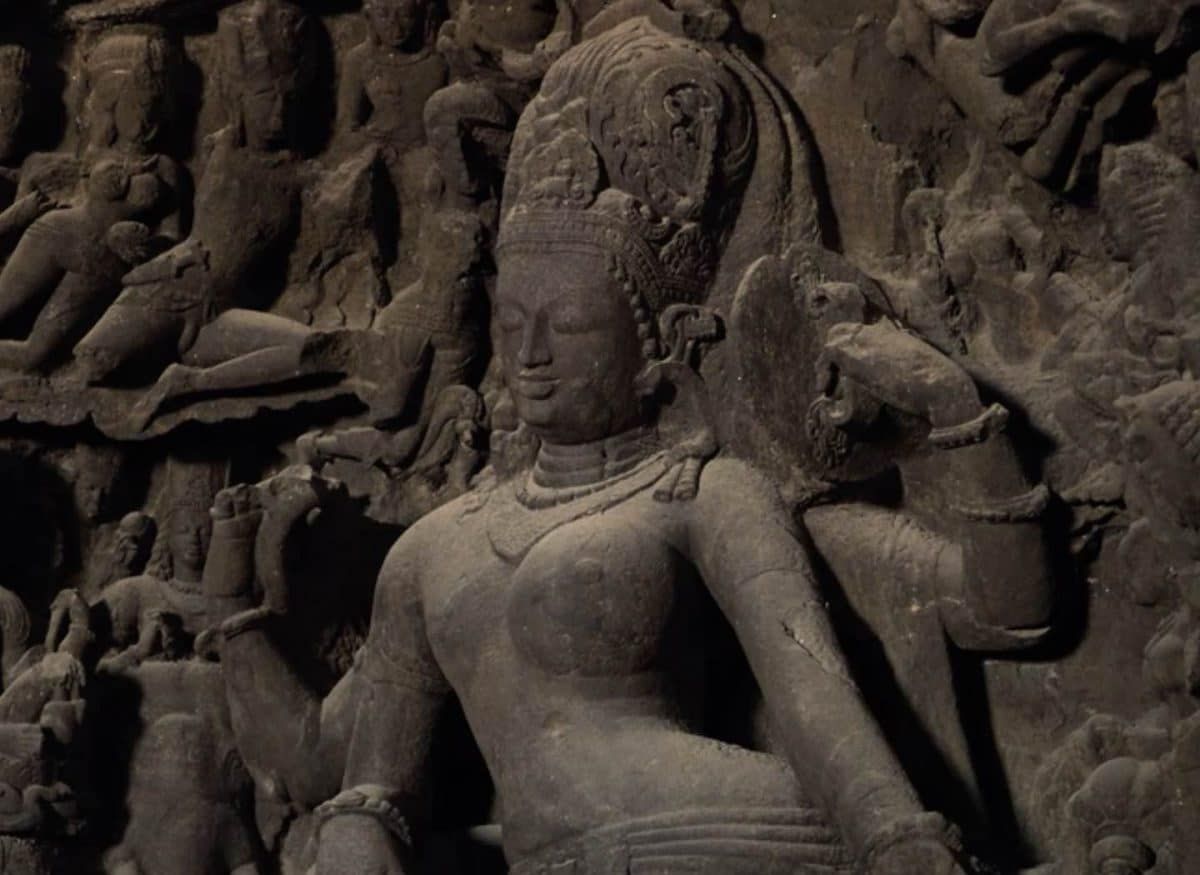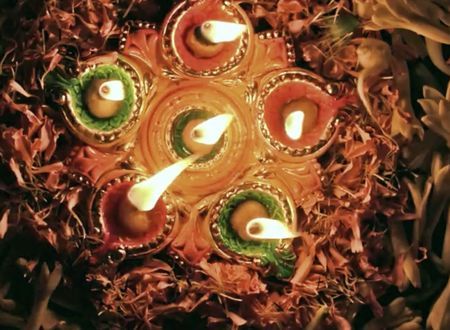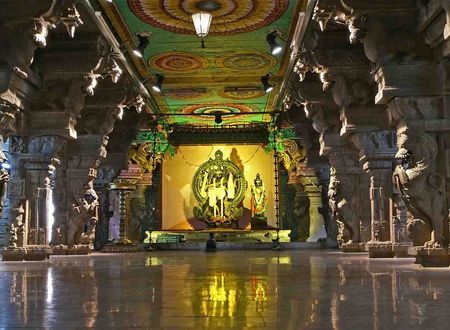You have probably heard me and other meditators use the phrase “expansion of consciousness”. It is one of the most phenomenal rewards of prolonged quality meditation. Two related questions that I’ve been often asked are: is meditation the only way? And, what is expansion of consciousness?
The answer is that of course, there are other ways. But regardless of whichever path you adopt, your journey becomes easier and swifter if you are a good meditator. For it’s amazing what great one-pointed concentration does to you. Today, I’ll share with you one such path, the Vedic, hence more ancient and Eastern, way of tapping into your higher consciousness.
Before I do that though, it’s important to spell out what I really mean by expansion of consciousness. Allow me to share a somewhat long passage from my book, The Ancient Science of Mantras where I cite one of my favorite authors, Ramesh Menon. I quote:
The length and breadth of India is strewn with temples that have a startling commonality of themes. Increasingly, I do not believe the Puranas, the books that describe these themes, are merely fictions of men of old. Rather, they seem to describe a human history more primal than the one of a few thousand years to which we habitually think of ourselves as belonging. In the Puranas, we see reflections of a cosmic history, when this earth was open to the universe.
It is difficult to accept that the greatest glory of ancient India was the drainage system of Mohenjo-Daro and Harappa. We know, from modern cosmology, that the universe is much older, vaster and more complex than we imagined a hundred years ago. We know our own history is less than a speck against universal horizons of space and time. It is absurd that we pass any judgment whatsoever on a universe in which we are such infants: that we dare say ‘This is so and this not in the cosmos’. Surely, our human history is an infinitesimal part of the history of the universe, not vice versa; and our ignorance is far more profound than our knowledge.
The characters in the Purana are ‘cosmic’ in dimension, even the lesser ones; as is the sweep of time, space and spirit we encounter here. We can easily dismiss it all as the exaggerated fantasies of nameless writers of the dim past. Or else, we begin to suspect there is more to learn here than we dreamt: that human history is fundamentally different from what we have been taught.
In the Purana, we find this description of time, which is hardly the invention of brutish man scrabbling to create the spoke and the ploughshare:
The basic unit of life is the nimesha, the instant. Fifteen nimeshas make one kastha, thirty kasthas one kaala, thirty kaalas one muhurta and thirty muhurtas one day. Thirty days is a maasa, a month, which is one day of the gods and ancestors; six maasas make an ayana, two ayanas a year. One human year is a day and a night for the celestials, uttarayana being the day and dakshinayana the night. Three hundred and sixty-five human years make a divine one.
Four are the yugas in the land of Bharata: the krita, treta, dwapara and kali. The pristine krita lasts 4,800 divine years, the less perfect treta 3,600 years, the half-corrupt dwapara 2,400 and the almost entirely evil kali, 1,200.
A chaturyuga, one cycle of four ages, is 12,000 godly years long, 12,000 x 365 human years. Seventy-one chaturyugas make a manvantara, fourteen manvantaras a kalpa. A kalpa, of 1000 chaturyugas, 12 million divine years, is one day of Brahma, the Creator.
8,000 years of Brahma make one Brahma yuga; 1,000 Brahma yugas make a savana. Each Brahma lives for 3,003 savanas.
A day of Brahma’s has 14 Indras, his life 54,000 Indras.
One day of Vishnu is the lifetime of Brahma.
One day of Siva is the lifetime of Vishnu…
Can it be that our past was more than what we think? Was it, in its way, inconceivably superior to the present? By the Puranic calendar, we live today at the outset of a kali yuga. Thus, Rama lived in the world more than 800,000 years ago and Krishna, some 4,000 at least. 1
The entities we worship as gods [in Sanatana Dharma] were once our ancestors. They roamed our planet like you and I move about now. There is an eternal, intricate and definitive link between our ancestors and us. They live in us. We carry their genes. It is not unreasonable, therefore, to conclude that if they attained the status of “God”, we too have the same potential. All that is required is to put that potential energy in motion, to turn it into creative energy so you may elevate yourself.
Potential is not the same as reality though. Everyone can become Buddha but not everyone does. Anyone can score 10,000 runs in cricket but not every cricketer does. In a car race where only Ferraris will compete it doesn’t mean that all of them will cross the finish line at the same time, for example. That we have the potential to be divine does not mean we are already divine. We have to reach that level of divinity. 2
At its core, expansion of consciousness is the journey of realizing your potential. When you read the definition of time found in our ancient texts, you can’t help but wonder how they could have possibly arrived at these profound truths and numbers all those thousands of years ago. When supposedly they didn’t have telescopes or rocket ships. The answer is rather simple: every single seer in ancient Indian history was either a devoted meditator or a dedicated practitioner of the Vedas, often both. The knowledge you find in Vedic texts is something the sages gained upon dhyana, deep reflection, and tapasya, penance.
According to the science of mantras, it is possible for anyone with the right mindset, effort and intention to align their energy with that of the universe. And when that happens, you sort of become one with the space around you. We then perceive the universe not through our brain caged in our tiny physical body but through our consciousness coursing through our universal body. As that happens, it becomes naturally easy for you to shed every limiting belief, to question your assumptions, to challenge your views. Two incredible things happen when your consciousness expands. One, you grow emotionally, and two, you evolve spiritually.
As the beautiful (and sometimes painful) process of awakening unfolds, the oneness you experience with the universe becomes a permanent feature of your consciousness. As it says in the Durga Saptashati:
चितिरूपेण या कृत्स्नमेतद्व्याप्य स्थिता जगत्।
chitirupena ya kritsnametadvyapya sthita jagat|
IAST: citirūpeṇa yā kṛtsnametadvyāpya sthitā jagat।
She, in the form of consciousness, pervades this universe and abides in it. 3
In fact, Acharya Abhinav Gupta (950 – 1030 CE) states in Tantraloka that absolutely nothing in the universe is devoid of consciousness. (A similar view was posited by Bhagavan Mahavira 2500 years ago when he proclaimed that everything has a soul.) Abhinav Gupta defines the meaning of awakening as complete knowledge and complete freedom. 4 Such a state, he goes on to put on record, bestows upon the attainer supreme opulence and total independence. Spiritual, emotional and material.
Like the universe, consciousness is ever expanding, there is no limit. Somewhere, human progress is a testament to that.
To that effect, the Vedas are full of mantras, odes, chants and reflections that aid the seeker in attaining complete liberation. The focus of Vedic traditions is not self-improvement but self-discovery. They don’t focus on self-help as much as they focus on self-healing.
While an educated mind rejoices in the science of meditation which appeals greatly to them, you will be amazed at what all tapasya (penance) can do when done the Vedic way. A virtuous life (dharma), a disciplined lifestyle (purushartha), and a bit of time devoted to the Divine (ishvara pranidhana) is the Vedic way to expanding your consciousness. Take it up and your life will blossom in unimaginable ways.
I say this from experience. You are welcome to verify it.
Peace
Swami
P.S. I am excited to give you a sneak peek into what’s coming your way next year. I’d love for you to guess what it might be. (No spoilers, please. Comment only if you are not privy to my project already.)

Notes
A GOOD STORY
There were four members in a household. Everybody, Somebody, Anybody and Nobody. A bill was overdue. Everybody thought Somebody would do it. Anybody could have done it but Nobody did it.
Don't leave empty-handed, consider contributing.It's a good thing to do today.









Comments & Discussion
347 COMMENTS
Please login to read members' comments and participate in the discussion.